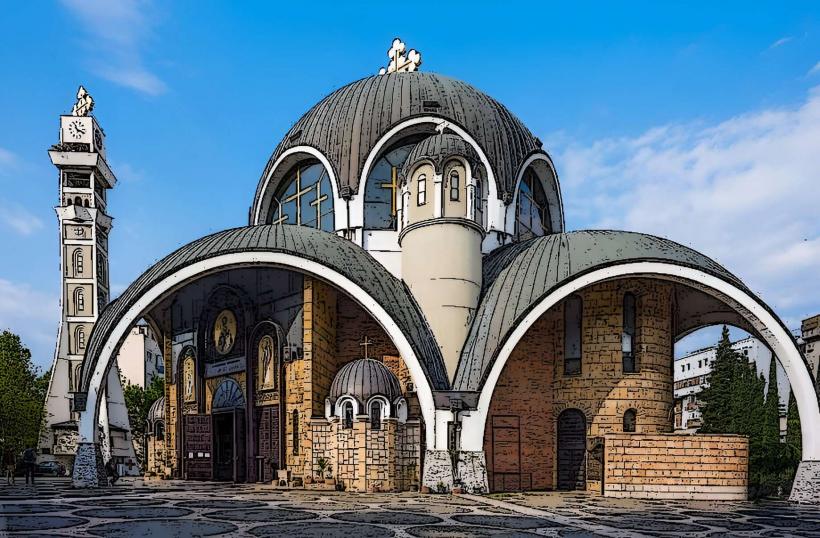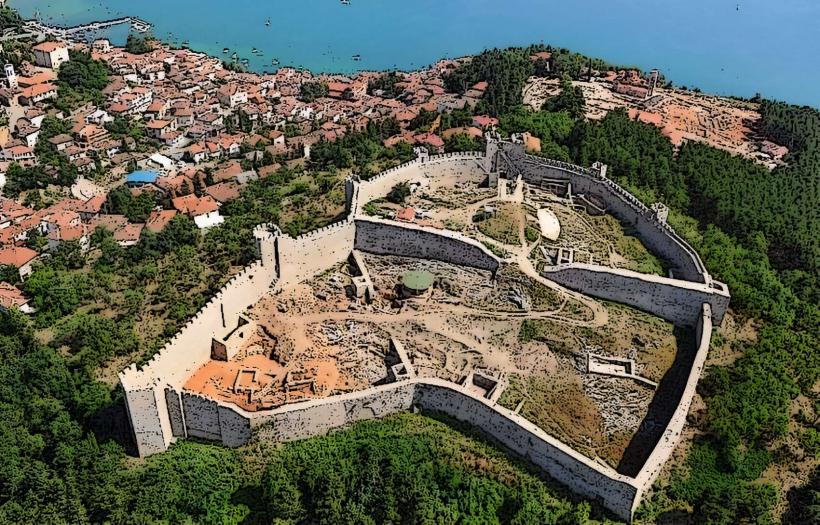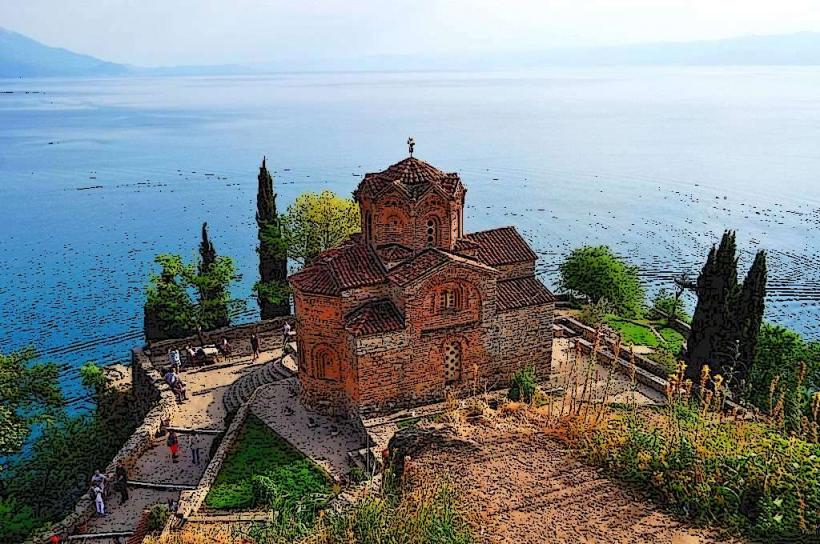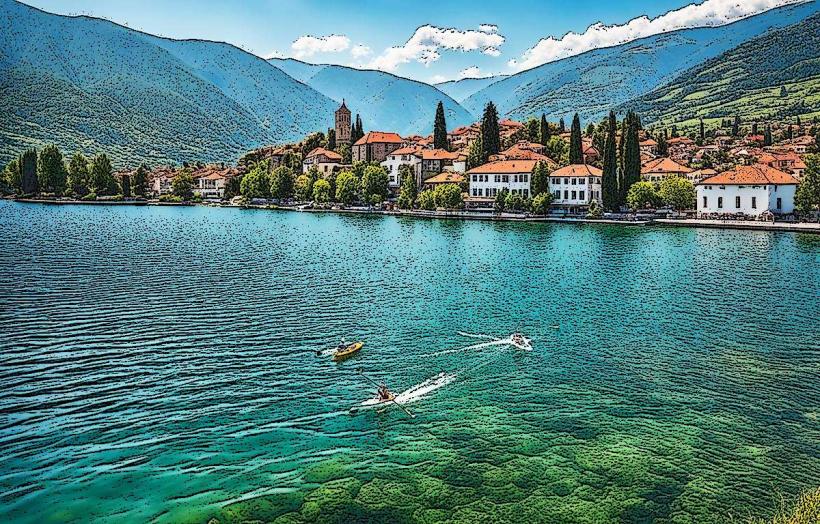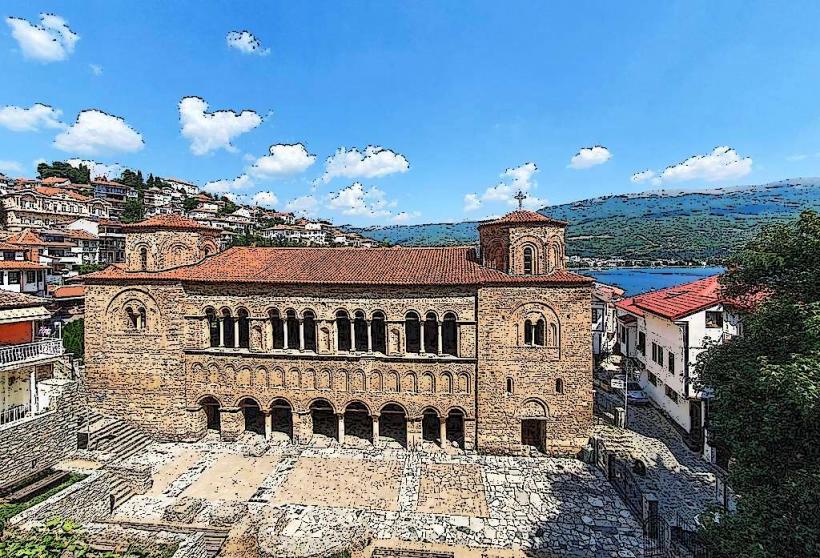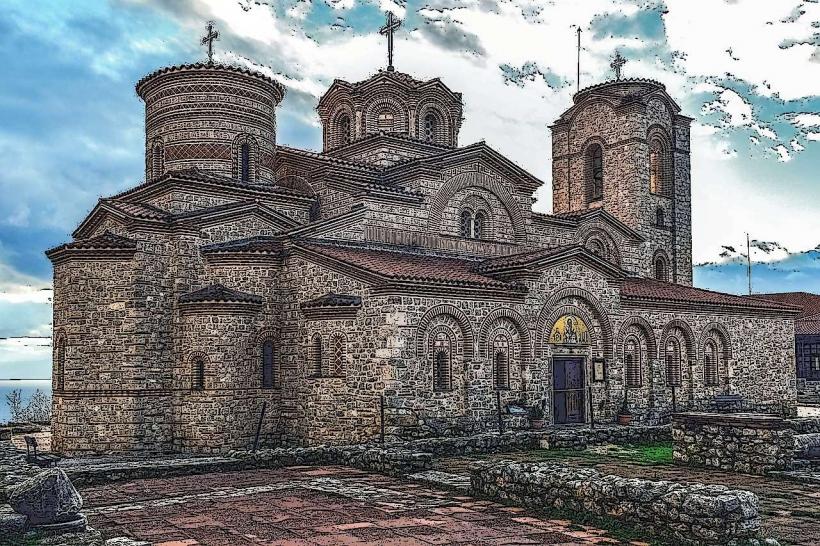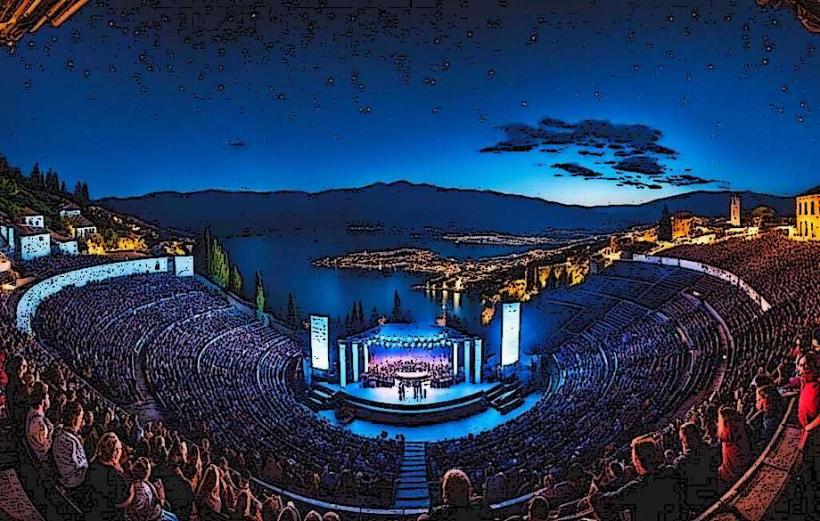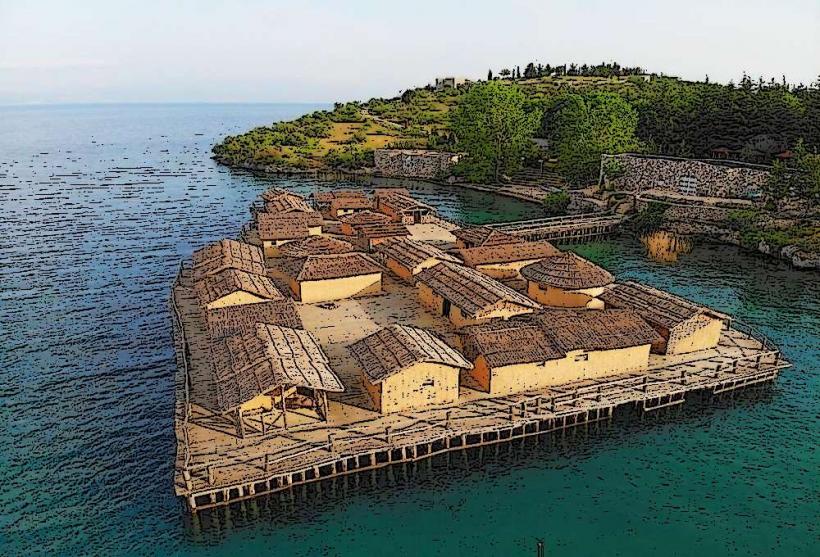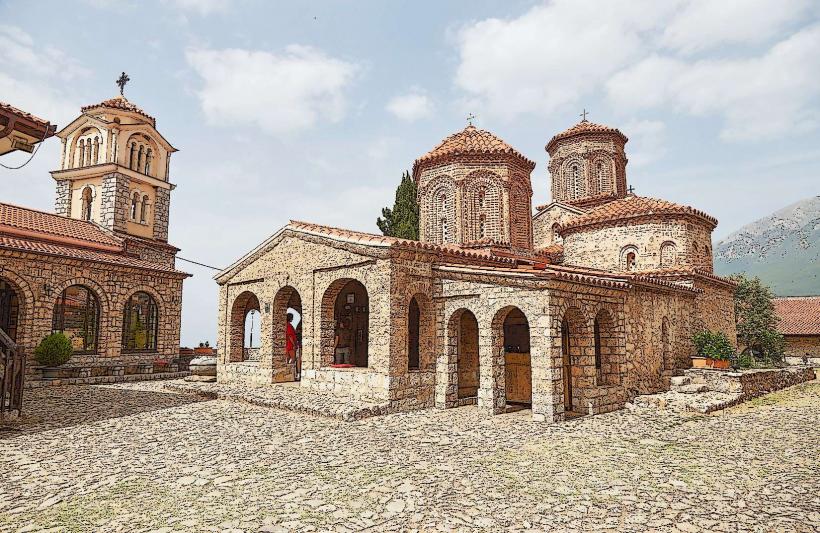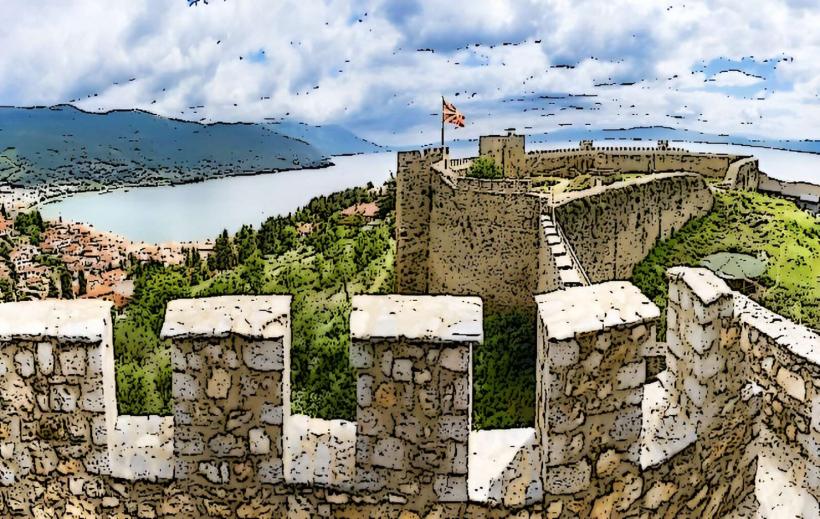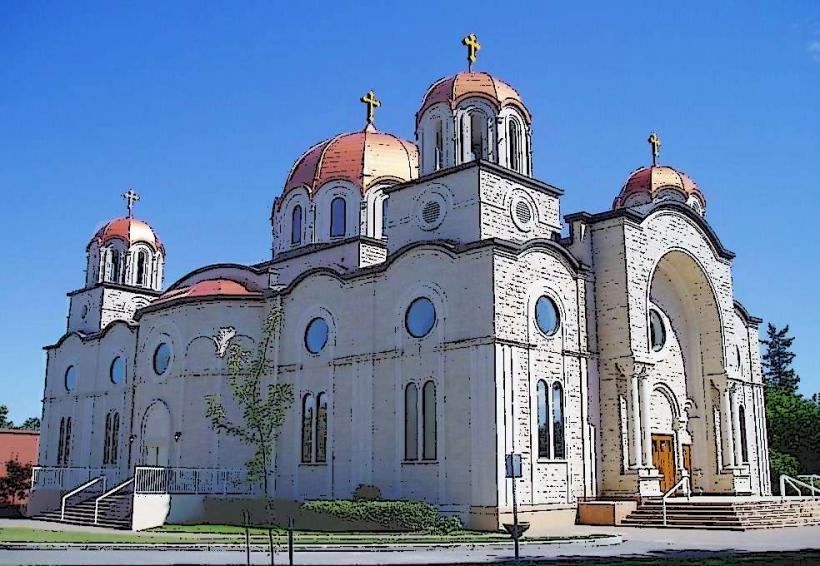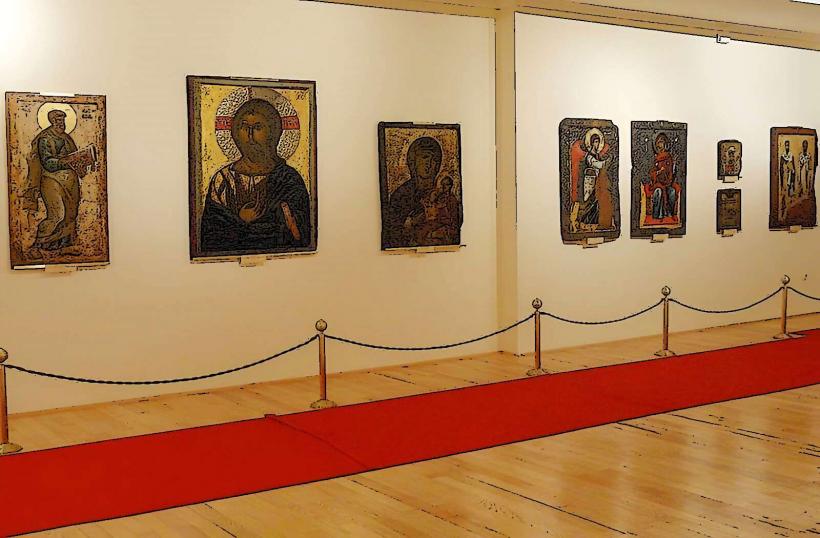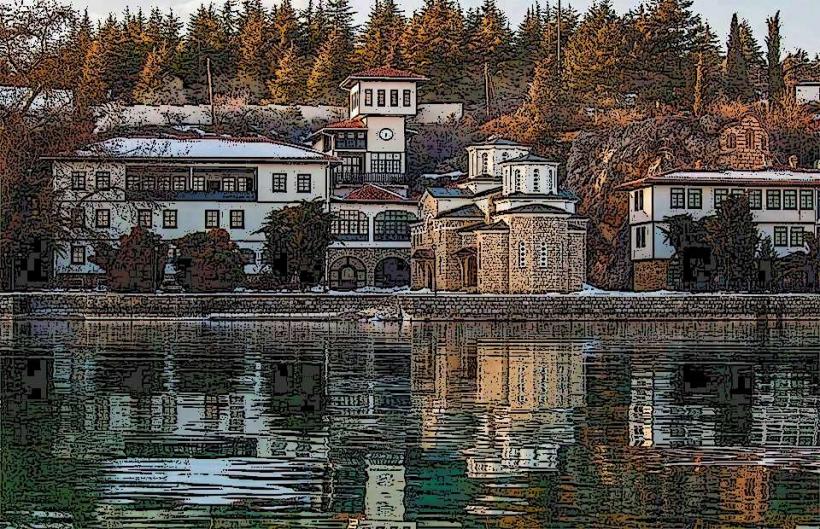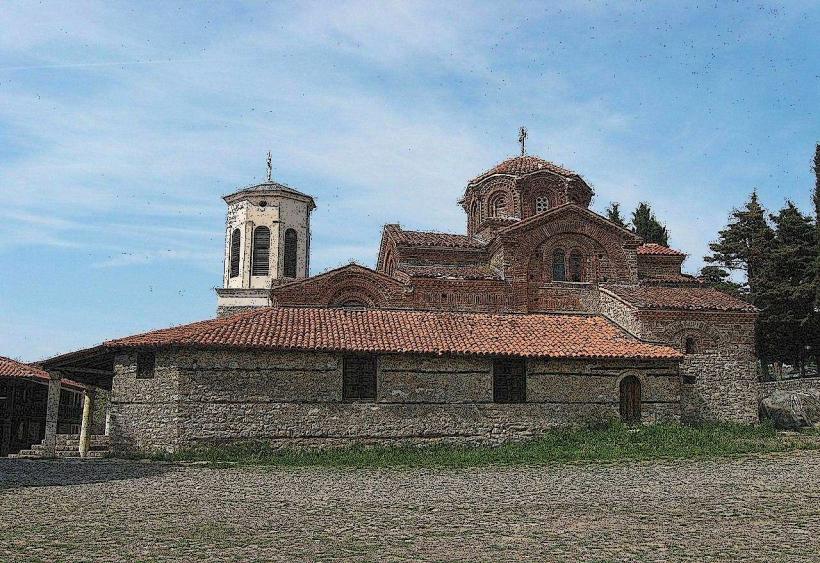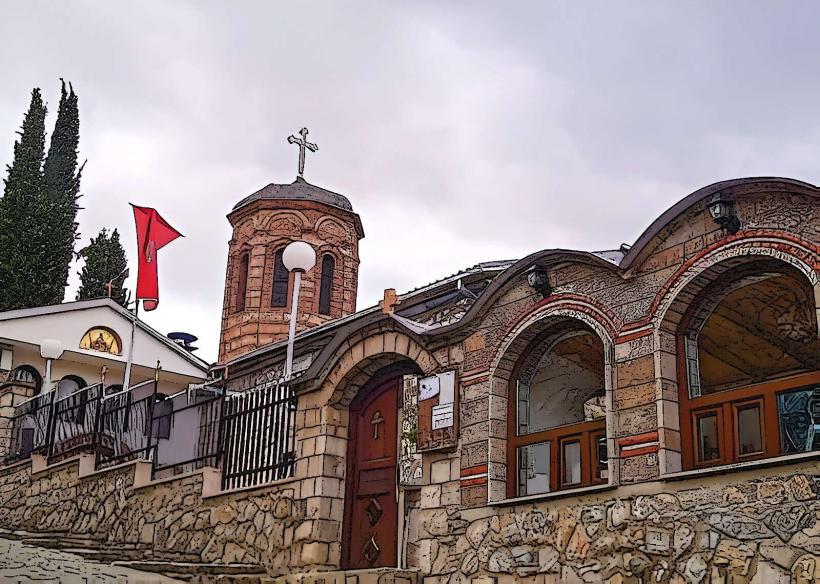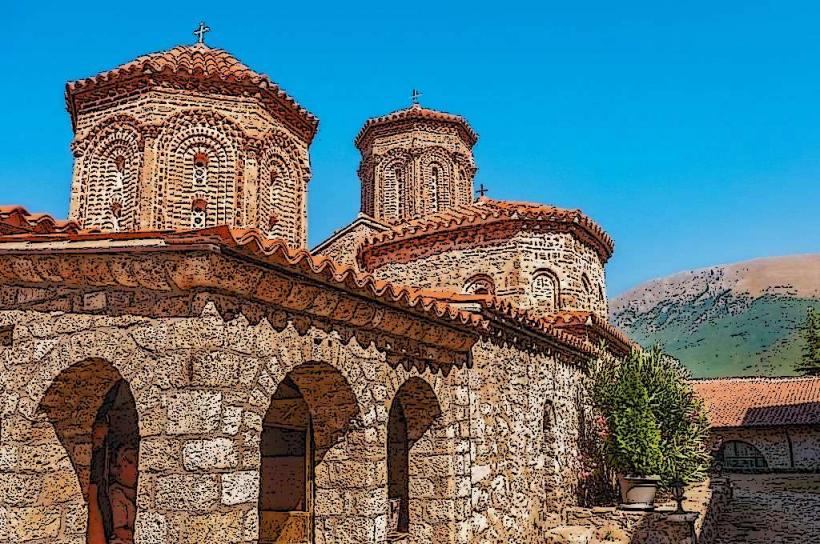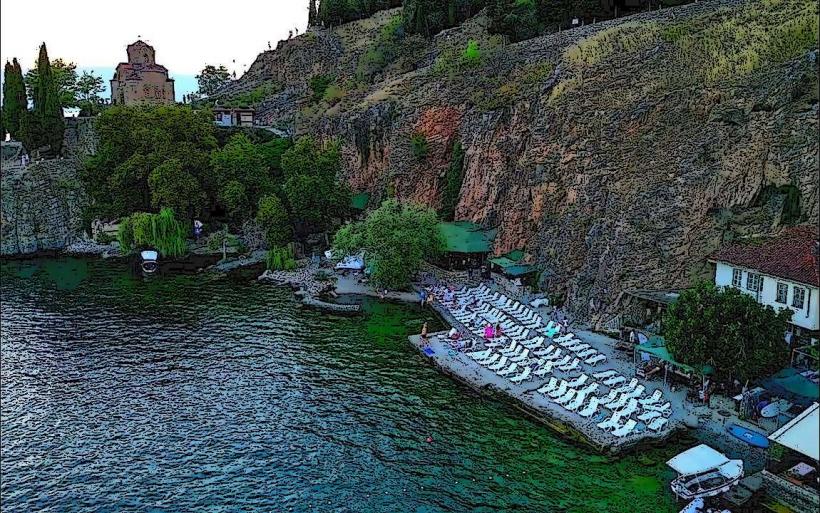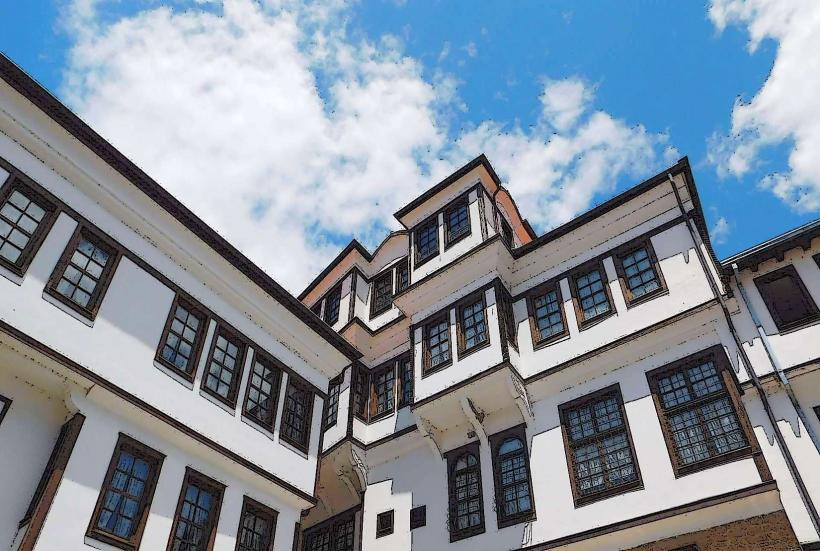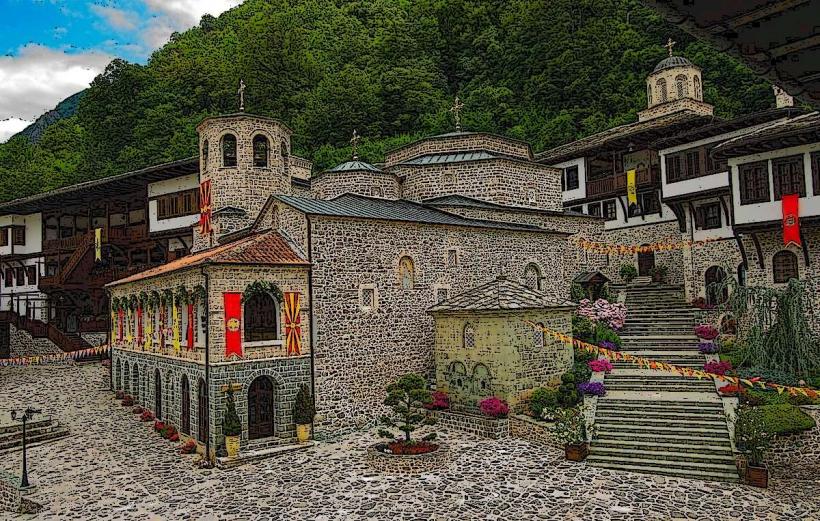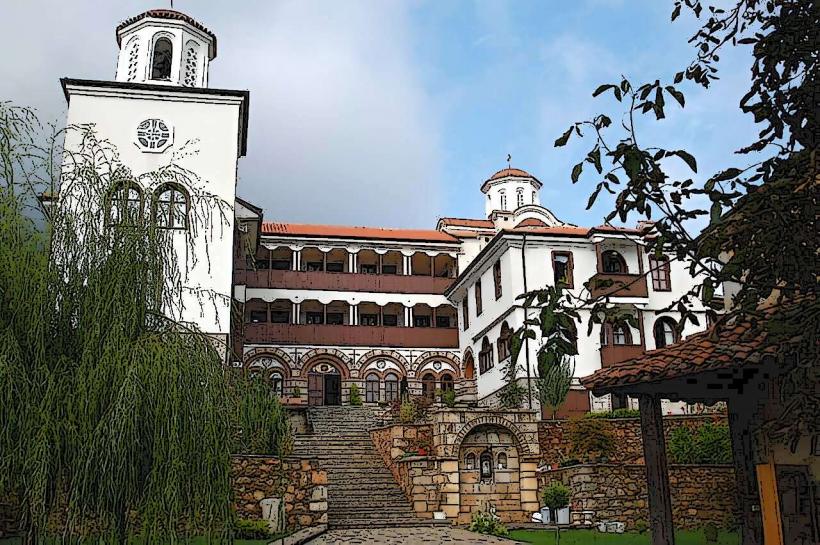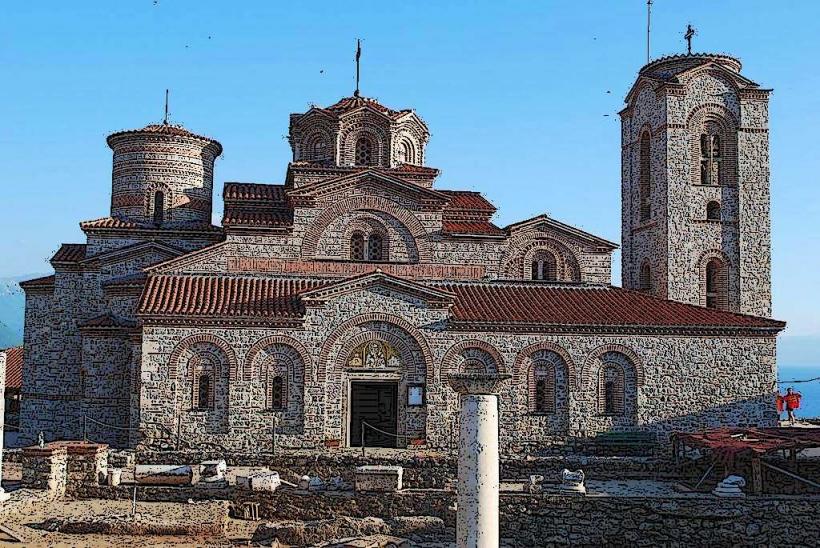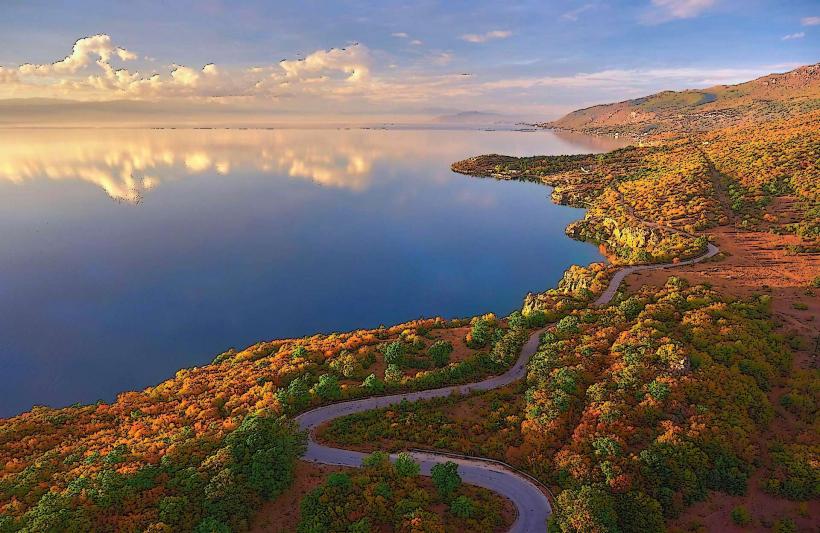Information
Landmark: Ohrid National MuseumCity: Ohrid
Country: North Macedonia
Continent: Europe
Ohrid National Museum, Ohrid, North Macedonia, Europe
The Ohrid National Museum is a cultural institution primarily housed within the Robevci House, showcasing archaeological, ethnographic, and historical collections from the Ohrid region. It is situated in the Old Town of Ohrid, North Macedonia, near the shores of Lake Ohrid.
Visual Characteristics
The main museum building, the Robevci House, is a three-story structure representative of 19th-century Ohrid urban architecture. Its ground floor is constructed from stone, while the upper two floors feature a timber frame with plastered walls, typically painted in light hues. The house is characterized by its prominent bay windows, intricate wooden eaves, and a red-tiled roof. The overall height is approximately 15 meters.
Location & Access Logistics
The museum is located at Tsar Samuil Street 62, within the pedestrianized Old Town of Ohrid. It is approximately 0.8km southwest of the city center (Ohrid Main Square). Access is primarily by foot through the narrow cobblestone streets. Public parking is available outside the Old Town walls, such as the parking area near the Lower Gate, approximately 0.4km east. There are no specific public bus lines directly to the museum entrance due to its location in a pedestrian zone.
Historical & Ecological Origin
The Robevci House, which forms the core of the museum, was constructed between 1863 and 1864 by master builder Todor Petkov for the wealthy Robev family. Its original purpose was a residential dwelling. The building was converted into a museum in 1953, consolidating various regional collections that span from the Neolithic period through the Ottoman era to the 20th century.
Key Highlights & Activities
Visitors can explore the archaeological collection, which includes artifacts like the "Ohrid Epigram" and ancient pottery. The ethnographic section displays traditional Ohrid costumes, jewelry, and household items. The historical collection features documents and photographs related to the city's past. Guided tours are available upon request at the entrance.
Infrastructure & Amenities
Restrooms are available on-site within the museum building. As an indoor facility, shade is provided throughout. Cell phone signal (4G/5G) is generally strong within the museum and surrounding Old Town area. Several cafes and restaurants are located within a 100-meter radius in the Old Town.
Best Time to Visit
The museum is generally open year-round. The best time to visit is during the shoulder seasons of April-May or September-October to avoid peak summer crowds. Mornings, shortly after opening, typically offer a quieter experience. No specific tide requirements apply.
Facts & Legends
The Robevci House is considered one of the finest examples of secular architecture from the Ottoman period in Ohrid. A unique feature is the original wooden ceiling in the main salon, which is intricately carved and preserved. The house was rebuilt after a fire destroyed the previous family residence on the same site.
Nearby Landmarks
- Ancient Theatre of Ohrid: 0.2km North
- Church of Saint Sophia: 0.2km East
- Ohrid Lake: 0.3km South
- Church of Saints Clement and Panteleimon (Plaoshnik): 0.7km West
- Samuil's Fortress: 0.8km Northwest

